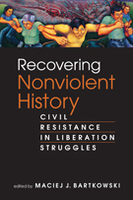A Talk on Militant Buddhism, Nationalism, Ethnic Identity, and Politics in Sri Lanka
“The Politics and the Anti-politics of the Bodu Bala Sena in Sri Lanka”
 A Talk by Tudor Silva
A Talk by Tudor Silva
Senior Professor of Sociology
University of Peradeniya, Sri Lanka
4:30 Thursday October 30 2014
Bond Memorial Hall
Swarthmore College
Professor Silva’s talk will focus on a group of Colombo-based militant Buddhist monks the Bodu Bala Sena (BBS), evolved in the aftermath of the military victory of the Government of Sri Lanka over the Liberation Tigers of Tamil Eelam in 2009. In the backdrop of the resulting Sinhala Buddhist nationalist triumph and the tendency of the ruling elite to by and large ignore minority concerns and demands, the BBS articulates a populist Sinhala-Buddhist majoritarian position vis-à-vis ethnic and religious minorities in the country, including certain Muslim and Christian groups who the BBS claims are all out to destabilize the “Sinhala-Buddhist nation.” The demographic clustering of ethnic minorities in urban Sri Lanka and their apparent economic domination and visible presence in trade and commerce as well as in the religious and cultural landscape have enabled BBS to target them in their various propaganda campaigns. The movement presents itself as free of and opposed to party politics in is effort to represent Sinhala-Buddhist interests but seeks to expose whatever it identifies as harmful to the cultural integrity and wellbeing the majority community. Employing a range of propaganda techniques including public rallies, mass media, face book and rumor, BBS has managed to influence a section of the Sinhala public, including youth, business lobbies and public sector employees, shaping their opinions, perceptions and sentiments. The mistrust so generated has been instrumental in some recent outbreaks of ethnic riots in small towns in the Western coastal belt in Sri Lanka. While the BBS shares a lot with earlier Sinhala Buddhist campaigns, the direct involvement of militant Buddhist monks as cultural border guards publicly inclined to take the law into their own hands represents a new development in post-war Sri Lanka. The presentation will explore the implications of BBS for social harmony, multicultural heritage, ethnic reconciliation and political developments in the country.
Kalinga Tudor Silva is a Senior Professor of Sociology at University of Peradeniya. He has regularly served as a member of the Intercollegiate Sri Lanka Education (ISLE) Program teaching faculty in Sri Lanka for over twenty-five years. Professor Silva has published more than a dozen books and over fifty articles and book chapters. His research interests include ethnicity, caste, economic development, and social aspects of health. His latest book Decolonization, Development and Disease: A Social History of Malaria in Sri Lanka was published by Orient Blackswan in March 2014.

